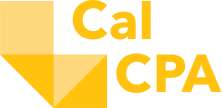In today’s rapidly evolving accounting landscape, alternative practice structures—especially those involving private equity—are reshaping how CPA firms operate. With this shift comes the critical need for updated ethical standards to ensure auditor independence and maintain public trust. That’s why CalCPA recently submitted formal comments to the AICPA’s Professional Ethics Executive Committee (PEEC), voicing strong support for proposed revisions to the AICPA Code of Professional Conduct.
Why This Matters Now
While the AICPA Code has long addressed outside investment in CPA firms, private equity’s growing footprint has introduced fresh challenges. Who ultimately holds influence? What’s the impact on independence? As firm structures grow more complex, CPAs need clear, actionable guidance they can rely on.
The PEEC’s APS Task Force has developed two proposed approaches to address these issues. After a thorough review, CalCPA endorsed Option 1, which calls for a dedicated APS interpretation within the independence rules, complete with illustrative diagrams, real-world examples, and practical tables.
What CalCPA Supports—and Why
CalCPA applauds the Task Force’s proactive, well-researched efforts:
Clarity Through Visualization: The example diagrams and structured tables bring much-needed clarity to complex ownership and influence structures.
Broad Applicability: The definitions and characteristics outlined are flexible enough to cover a wide range of APS forms, including future models.
Conceptual Framework Consistency: CalCPA agrees that relationships should be evaluated through the existing Conceptual Framework for Independence—providing a principles-based, adaptable approach.
Looking Ahead: More Guidance Needed
While CalCPA is on board with the current proposals, it also recommends expanding future guidance to address:
Emerging models like ESOP-owned firms, hybrid structures, and start-up-like nonattest entities.
Ongoing risk monitoring including periodic reassessments of threats, ownership tracking, and using independent professionals to safeguard objectivity.
With ownership structures changing fast and audit quality under the spotlight, CalCPA encourages the PEEC to move quickly toward releasing an exposure draft. Timely, practical guidance is essential to uphold independence—and confidence—in the profession.
As always, CalCPA remains committed to supporting the profession with clarity, foresight, and integrity. We look forward to continuing this important dialogue with the AICPA and other stakeholders.

